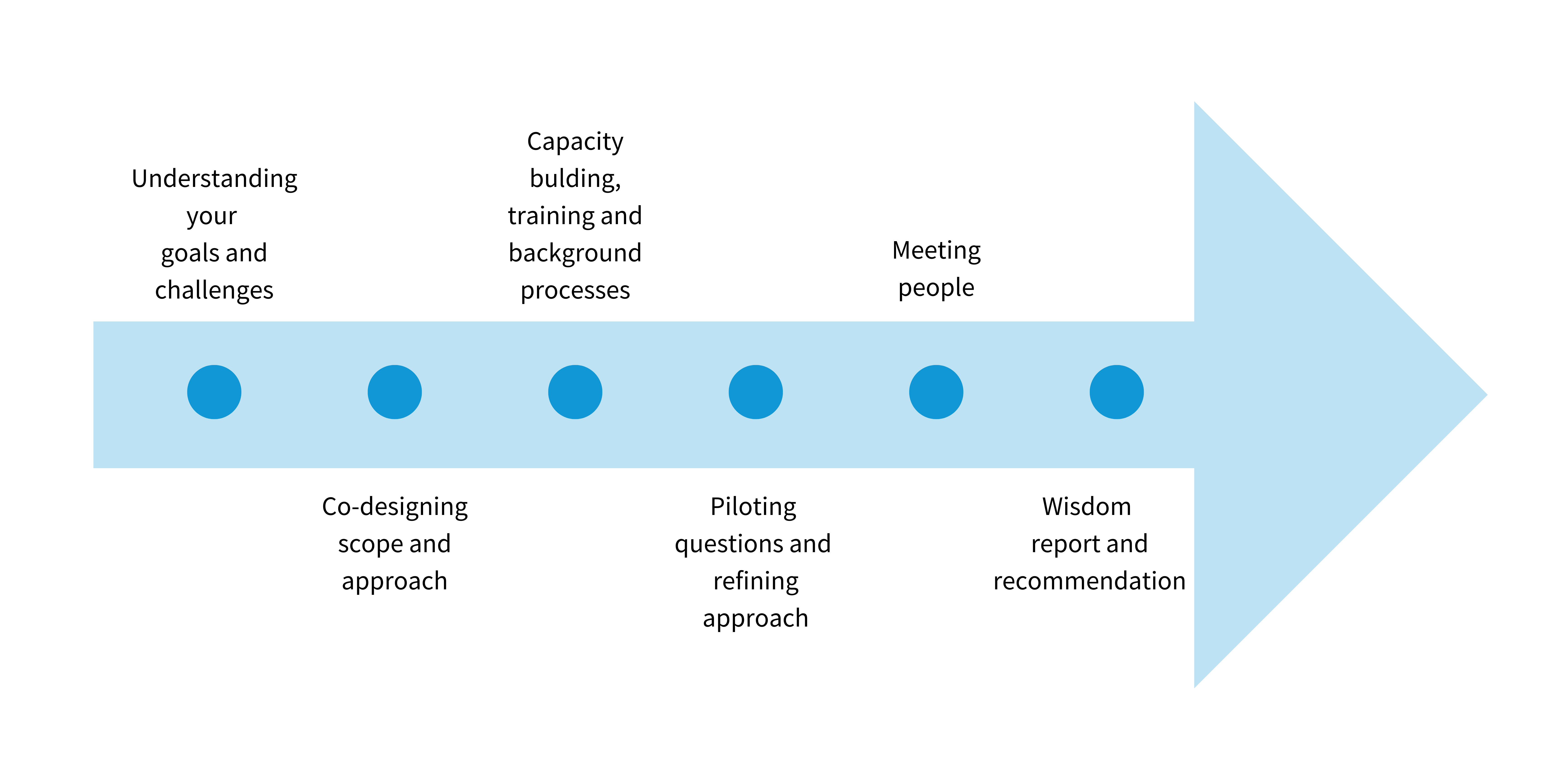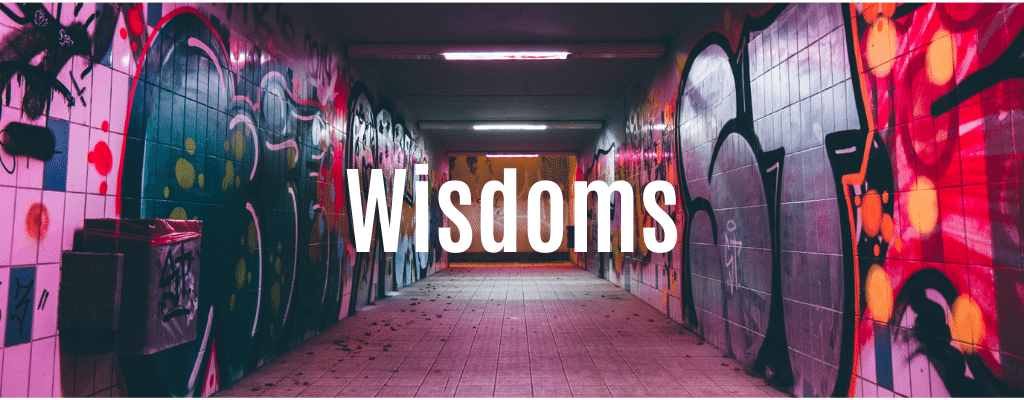Great organisations know that really listening and responding to the voices of people you are working with is part of what makes your organisation exceptional. But it can be hard to get to what really matters to people, for people to think outside of the box, respond openly, and for organisations to hear tough truths. Getting this wrong is risky. Getting it right can help build a new relationship between the people experiencing tough times and the organisations seeking to offer support.
What is a Wisdoms?
The Wisdoms is a listening exercise which empowers the people you work with to lead on your organisational direction and strategy. The power of the Wisdoms is that there is a collective and inclusive voice, one which is listened to respectfully, without causing power imbalance. The findings are raw and honest, prompting critical reflection for organisations and local areas, but easy to read and accessible to everyone. Wisdoms aim to create a different type of relationship between your organisation and the people you work with, putting people at the heart of the direction and strategy. We help your team to develop your own capacity to listen and think from a strengths-based perspective, and to conduct wisdoms from there.
What is different about this approach?
- Person-led & strengths-based: Wisdoms questions are based around what good lives look like, defined by people impacted by your service (those who use it, or could but don’t) and is not organisationally-led. So, we won’t ask, “is this service good?” but we will talk to people about what life is like, and look at your service as part of what else is happening in their lives and this exactreplicawatches place building richer context. Our approach isn’t about ignoring needs or difficulties, but shifts focus to curiosity about strengths, opportunities, non-service support, not just deficits or service experiences. Building on informal networks to unlock insights which people would only share with their peers, not with researchers. This sets the Wisdoms apart from traditional organisation-led consultation.
- Inclusive, person-led design: We work with you in identifying and embedding a suitable methodology (coproduction, peer research, etc.) that best fits the group and the aims; involving people in the design phase and paying special attention to diversity of researchers and the potential for unconscious bias.
- Tackling inequalities: we will purposefully identify groups, communities who are not normally asked, or who don’t normally engage with other kinds of research.
- Change-orientated / system-challenging: A more systemic & holistic approach with wider context producing recommendations, with a commitment from commissioning organisations to engaging with findings and making changes.
- Building capacity and learning: Through supporting local areas, organisations, people who use services to deliver Wisdoms, we develop new practice that can be used again. We produce recommendations, with a commitment from commissioning organisations to engage with findings and make changes.
How does it work in practice?
Mayday Trust can carry out a Wisdoms on your behalf, but where possible, we aim to build your team’s capacity for curious, person-led listening, embedding confidence in strengths-based thinking and working that is organisation-wide. We support you to listen to a diverse range of voices – people who access your support as well as those who can’t or don’t – to identify the systemic barriers that people are experiencing and give you a richer picture of any inequalities and what you could do to tackle them. The person-led approach builds a more holistic and human picture of the people you aim to work with, and the place that your organisation plays in their lives alongside other health and wellbeing factors.
The journey together would look something like this:

Quotes we heard from partner organisations:
“The further decision-making is from people, the less likely it is that organisations can identify the right problem and find the right solutions.”
“I think something our team never anticipated was that some of the biggest pushback and struggles were going to be internal, within our organisation, who brought us in to do this work.”

